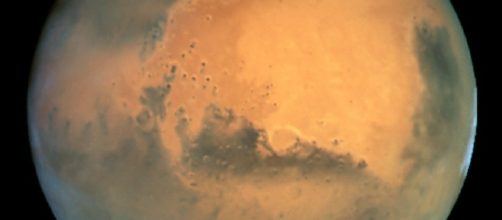Elon Musk’s vision of building a self-sustaining city of a million people on Mars has excited the imagination of the world and has caused considerable debate as to its feasibility and desirability. Andrew Coates, Professor of Physics, Deputy Director (Solar System) at the Mullard Space Science Laboratory, UCL is the latest to enter the fray, via the pages of the UK Daily Mail. Coates foresees three problems concerning Musk’s Mars colony idea, which can be labeled contamination, temperature, and radiation.
A Mars colony would contaminate life that might be on the Red Planet
An issue of vital concern to many in the scientific community has been the protection of Mars from contamination from Earthly life that might be carried by human visitors. The theory is that scientists will not be able to study Mars correctly if Earth microbes manage to get onto the Red Planet and somehow survive.
However, decades of Mars exploration have not uncovered more than a hint of Martian microbes. It is possible that no life exists on the Red Planet. In that case, Mars could be thrown open to settlers and scientists will then be able to study how people and other lifeforms from Earth adapt in the Martian environment.
It is freezing on Mars
One wonders why Coates brings the temperature factor up at all. The solution to cold temperatures is electricity running heaters. Nuclear or fusion reactors could provide all the heat needed to sustain human life on Mars.
Mars is hit with a lot of radiation
Coates brings up the fact that Mars is bathed by a great deal of cosmic background radiation because it lacks a magnetic field. Solar flares could also be deadly for future Mars colonists. Radiation is a more serious problem that had to be solved before Musk can start his settlement, to be sure. But a combination of active and passive shielding should do the trick.
Terraforming the Red Planet
Terraforming is the ultimate solution to making Mars a separate Earth.
The idea is that a magnetic shield in space would shield the Red Planet from solar winds that stripped away its atmosphere. Then the planet can be gradually heated with a controlled greenhouse effect, thickening its atmosphere, melting the ice to restore its seas and streams, and then introducing genetically enhanced lifeforms to create an ecosystem where human beings could live.
Coates is quite right to point out problems concerning Musk’s Mars colony. The ones he lists are not the only ones. But none of these objections are Show Stoppers, giving the expenditure of resources and the will to prevail.


